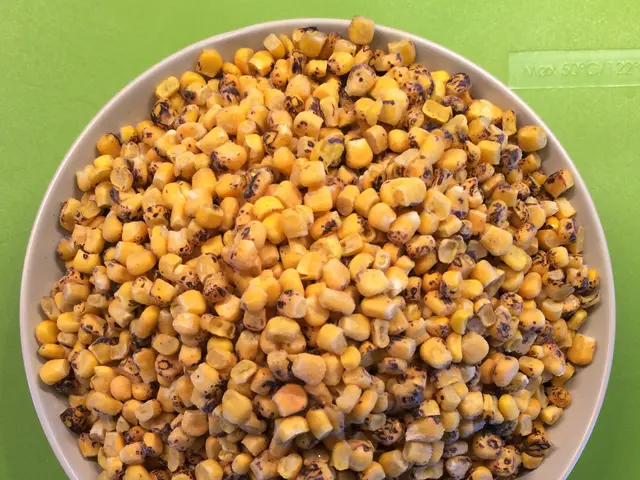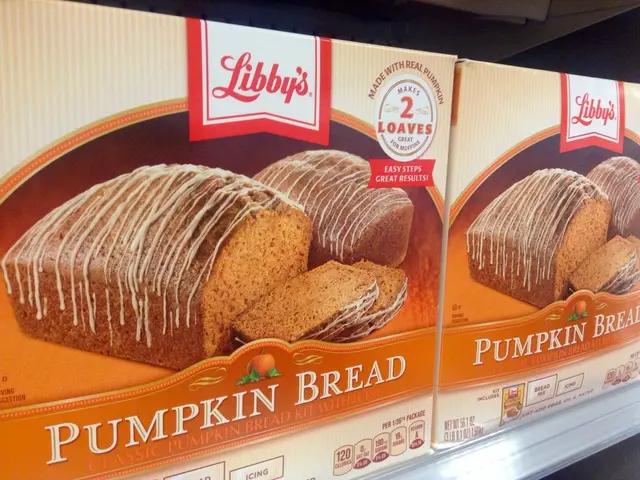Foods That Aren't Ideal for Freezing: Eggs, Yogurt, and More
Frozen Foods to Avoid: A Comprehensive Guide
Whether you're looking to save time or reduce food waste, freezing extra meals and ingredients can be a lifesaver. But not all foods fare well under subzero temperatures. To help you make the most of your freezer, let's delve into the top foods you should steer clear of.
- Raw Eggs: Just like soda cans, raw eggs can also expand and potentially cause a mess when frozen. They pose a contamination risk too, given the presence of salmonella bacteria. If egg prices have you feeling financially crunched, don't fret! Simply beat the yolk and whites together before freezing and prioritize unopened liquid pasteurized eggs or egg substitutes for lengthier storage.
- Cooked Eggs: Although freezing doesn't pose health concerns, the texture and taste of cooked eggs (e.g., scrambled or omelets) will be severely compromised. In fact, they'll become soft, tough, rubbery, and spongy, ruining the whole purpose of freezing your leftovers.
- Dairy: While hard and semihard cheeses can be frozen, other soft cheeses (brie, ricotta, cream cheese, and cottage cheese) separate upon freezing, losing their quality. Homemade eggnog, half-and-half, heavy whipping cream, whipped butter, milk-based sauces and gravies, cream and custard fillings, and cultured products such as yogurt, buttermilk, and sour cream also suffer similar fates.
- Fried Foods: That homemade fried chicken, calamari, corn fritters, or even a fried Oreo will lose its crispy magic when frozen, turning soggy. Frying isn't just about the crunch; it's about the taste, too. To savor the true essence of these treats, eat them the same day they're fried.
- Raw Vegetables (High Water Content): If you're marathon slicing and dicing veggies for meal prepping, be mindful of leafy greens like lettuce, cabbage, celery, parsley, radishes, and cucumbers, as well as tomatoes and bell peppers. Cold temperatures cause the water crystals to solidify and expand, compromising the structure and texture of these veggies. They'll become soggy and mushy, ruining their crispness and crunch. However, cooking or marinating some of these veggies can mitigate this issue.
- Fruits (High Water Content): Watermelon, grapes, apples, oranges, clementines, and other citrus fruits typically suffer the same fate as high water content vegetables when frozen. The solution? Turn leftover or aging fruit into jam instead of freezing it.
- Pasta: Like high water content fruits and vegetables, pasta also becomes mushy in the freezer. The key to enjoying pasta at its best is to cook it right before serving, focusing on portion control to minimize waste. If a significant portion is leftover, combine it with a sauce or turn it into a casserole to preserve its original texture.
- Heavily Seasoned Food: Onion, paprika, curry, celery seasonings, sage, cloves, garlic, pepper, green pepper, imitation vanilla, and certain herbs can have their flavors altered when frozen. In the case of herbs like mint, dill, chives, basil, parsley, tarragon, and lemon balm, freezing them is perfectly fine. For other flavors, simply season food lightly before freezing, then enhance it again when reheating or serving.
By avoiding these common frozen food pitfalls, you can enjoy delicious and safe meals while minimizing waste in your kitchen. Happy freezing!
- Health: 6 Habits Your Gut Is Begging You to Break, According to GI Docs
- Life: 5 Little Ways to Be a More Positive Person-Without Faking or Forcing It
- Shopping: Olympians Say the Best Home Rowers Are Worth the Investment
- Incorporating a balanced diet is crucial for maintaining good health, and this includes being mindful of the types of food that are not suitable for freezing to preserve their quality.
- When it comes to cooking and food-and-drink choices, adopting recipes that limit the freezing of raw eggs, dairy, fried foods, high water content vegetables, fruits, pasta, and heavily seasoned food can contribute to a health-and-wellness lifestyle.
- Stockeding your kitchen with unopened liquid pasteurized eggs or egg substitutes, frozen vegetables that are properly blanched, and frozen fruits turned into jams can help maintain a healthier and more nutritious lifestyle.
- By prioritizing fresh ingredients and cooking meals with a focus on science and lifestyle, you can achieve a more delicious and fulfilling food-and-drink experience in your day-to-day life.








